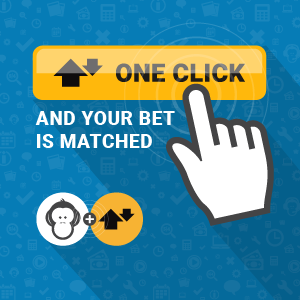The NCAA has an NCAA Problem

There’s a situation currently arising in college basketball that has planted itself in the American sports conversation. The FBI’s investigation into college basketball wrongdoing peaked, at least for now, with the leaking of a 24-year old agency employee’s expense reports and the news that Sean Miller discussed paying Deandre Ayton $100,000 to play for Arizona on a wiretapped phone.
There’s certainly questions to be asked about why the FBI is involved in this at all, given the current state of the world. NCAA rule infractions are by no means criminal in nature. No one goes to jail for violating the sanctity of amateurism. Though I’m sure some of the activities involved in these schemes involved money laundering or fraudulent transactions, the main reason people are concerned with this story is the NCAA implications.
Nothing has Changed, Nothing will Change
The evidence and the particulars of this scandal may be new, but it must be understood that absolutely nothing about college basketball has changed. Players have received some form of “illegal” benefits for as long as the sport has been relevant in America. Great players, teams, coaches, and programs have all been accused or proven to have broken the rules and the sport has soldiered on with nary a bump in the road.
Like other systematically flawed quagmires, college basketball will survive this scandal by trimming some fat and changing little-to-nothing about itself. Miller and Arizona appear to be the likely scapegoats, with a few other coaches and programs possibly joining them. But the essence and structure of the sport will not change. High-level college basketball will continue, and players will probably still get paid by boosters, agents, and shoe companies smart enough not to leave a paper trail next time.
Pundits and fans are scrambling for ways to eradicate this behavior from the sport, yet every suggestion short of paying players for their services, or use of their likeness, is merely a deck chair tossed off the Titanic. The problem at the core of college basketball (and football, for that matter) is an abundance of demand for the product, with a limited supply of people able to deliver the goods. As long as college sports are available for consumption, someone will be willing to circumvent the rules to make sure their team gets the best possible players.
“One-and-Done” is not the Source of the Problem
Notice also that I said “the best possible players” above. Some believe that if college basketball could simply rid itself of the “one-and-done” type prospects, the corruption and rule breaking would magically cease. The NBA’s age limit is a relatively recent development, but paid college basketball players are not. Nothing prevented the Fab Five from jumping to the NBA, yet they were still accused of receiving benefits and have since had their victories vacated at Michigan. The one-and-done rule wasn’t in place when Kelvin Sampson was fired by Indiana for recruiting violations.
Even perusing the names in the recent scandals makes it clear that this problem extends beyond top NBA prospects. Brian Bowen was the first player implicated in this entire mess, causing Rick Pitino’s firing at Louisville. He was reportedly offered $100,00 to play for the Cardinals, despite being the 14th ranked incoming freshman by ESPN and barely registering on the minds of NBA scouts when he left high school.
With all of that being said, there must be some answers here. We can’t simply shrug our shoulders and accept the status quo as what will always be. The only answer that truly fixes everything is for college basketball players to be paid their fair share for their time, effort, and value to their schools. Fat chance of that happening any time soon.
Options Beyond College Hoops?
My second inclination was that if the money is coming from agents and shoe companies, as we’ve seen in the FBI reports, there could be a way to funnel many of the players looking to receive money into the NBA’s G-League or international play. If those buyers are more interested in the long-term payouts of players, where they play and how they pay them should take on less importance. That isn’t necessarily true, though.
Find me someone who can tell me when and where I can watch the G-League on TV and I’ll show you someone who has a relative who plays in the G-League. College basketball offers these “long-term investors” a treasure trove of marketing opportunities and media exposure. Not to mention, the college game offers a rubber stamp of approval from proven brand names we all know and can identify. Part of the reason we’ve seen so few high school stars follow the Brandon Jennings and Emmanuel Mudiay model by playing overseas instead of in the NCAA is simply because the model was set by Jennings and Mudiay. Contrast that to the selling point of a Kentucky or Duke, with years of stars, history, and legacy. If you were an agent or a marketer, would you rather a client coming to the NBA from an international league with grainy clips on YouTube or having played a dozen games on Big Monday on ESPN at Rupp Arena. There’s no comparison.
“Find me someone who can tell me when and where I can watch the G-League on TV and I’ll show you someone who has a relative who plays in the G-League“.
College basketball is an institution, for better or worse. That means there is intrinsic value in the sport, but also means there is no way to fix the underlying problems with the game by adjusting cosmetic details.
The only real, short term fix we can find from the current scandal comes from differentiating the two kinds of infractions being reported. Sean Miller directly discussing paying a top recruit to come to his school is very different from an established college player receiving money from an agent, in hopes of signing that player when he turns pro. The latter scenario pops up throughout the expense reports leaked from ASM. We see things like players getting free meals, loans, or lump sum payments to sign with the agency when they play in the NBA. This form of NCAA rule breaking has a far smaller impact on the competitive balance of college basketball and is more about the politics of professional sports agents. Fred Van Vleet reportedly receiving $1,000 his senior year at Wichita State to consider an agent in the future has little impact on the success of Wichita State in the present or future.
The other infractions reportedly popping up, most notably with Bowen at Louisville or Ayton at Arizona, are players being paid to attend a specific school. The FBI is only going to stick around to act as the NCAA’s disciplinarian for so long. Once this investigation subsides, the NCAA will again have no legitimate way to police infractions. Sure, they love to take away banners or toss around wrist slaps willy nilly, but neither of those solutions corals the problem as it happens. Without the ability to strike the fear of God into coaches and boosters, making them believe that they are better off missing out on a recruit than cheating to get him to sign, the status quo will return.
Luckily for us, that still means madness every March. Just like top recruits, we’ll take what we can get.
This article was originally publish here at PalestraBack.com. For more from Shane, follow him here.



















